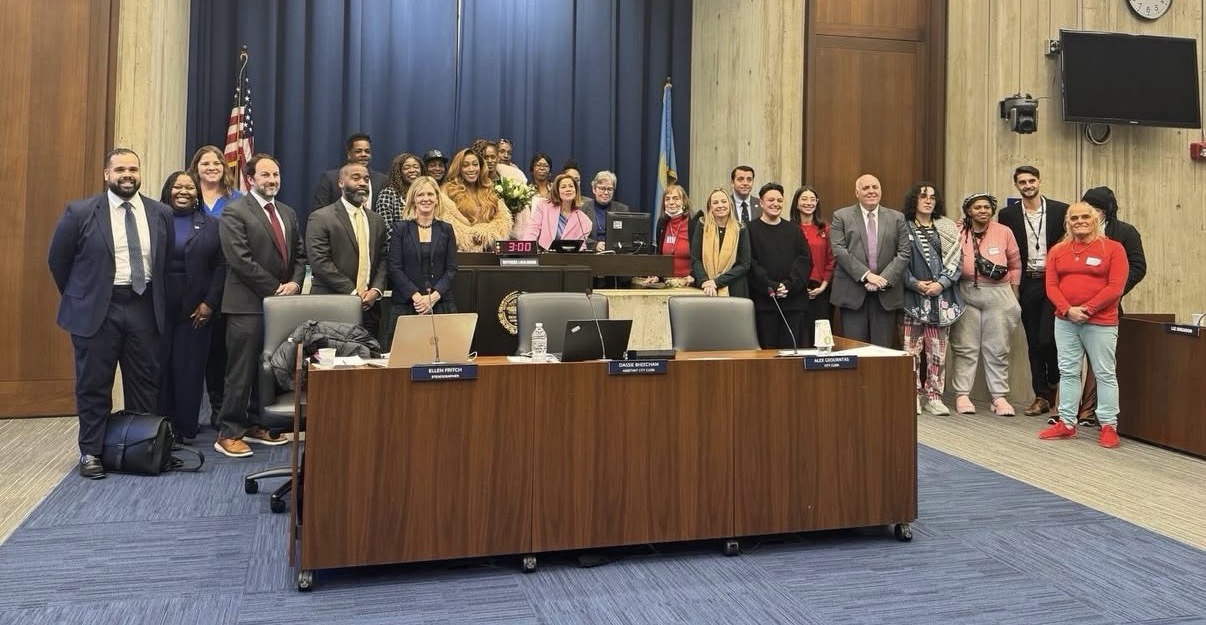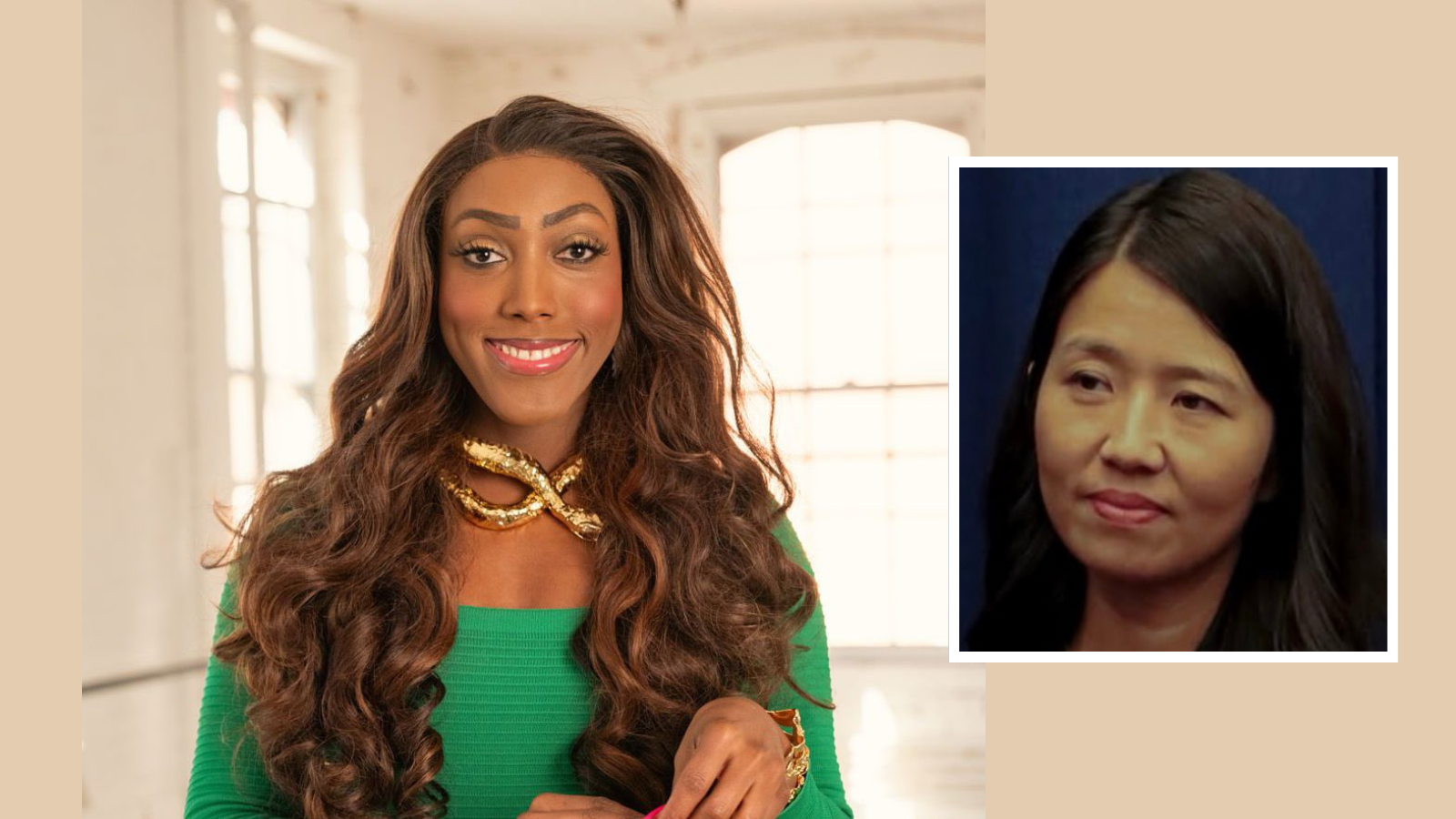BOSTON — The Boston City Council used this week’s Trans Day of Remembrance observances to send a very deliberate message: City Hall is standing squarely behind Women’s Commission appointee Giselle Byrd, whose appointment last week ignited a national firestorm, viral outrage, and millions of views across social media claiming “women are under attack” and accusing the city of crossing a line.
On Wednesday, councilors packed into the Chamber for a choreographed group photo — no candles, no vigil atmosphere, just a tightly staged City Hall lineup — and there in the center of it stood Byrd. The placement wasn’t accidental. It read as intentional political positioning from a City Council eager to demonstrate unwavering support despite the blowback.

MASSDAILYNEWS
STAY UPDATED
Get Mass Daily News delivered to your inbox
Then today, Mayor Michelle Wu rolled out her own Trans Day of Remembrance message — a pastel-toned graphic declaring that Boston “honors” the day, paired with a caption remembering “trans friends and neighbors lost to acts of anti-transgender violence.” Wu’s post referenced the 1998 killing of Rita Hester and framed Boston as a city where “authenticity and joy are centered,” echoing the same themes of solidarity and inclusion that City Hall pushed in the council’s photo op a day earlier.
Byrd’s appointment to the Boston Women’s Commission didn’t produce quiet policy discussion — it detonated instantly. Viral clips, commentary accounts, and national outlets blasted the move, with posts racking up millions of impressions and framing the decision as part of a broader cultural battle. The outrage moved across social media platforms at remarkable speed, turning a local appointment into national discourse overnight.
Featuring Byrd so prominently in this week’s events was more than symbolism. It was strategy — a clear, public counterpunch from City Hall. The council’s group photo and the mayor’s Instagram rollout both functioned as political statements: despite the uproar, despite the headlines, despite the criticism from around the country, Boston’s leadership is not reversing course.
The choreography was textbook City Hall: polished visuals, official language, and imagery designed to be shared far beyond Boston’s borders. But beneath the surface-level solemnity, the subtext was unmistakable — the City Council taking the lead in defending one of the most controversial appointments in recent memory, with Mayor Wu’s post reinforcing the broader messaging from City Hall.
For residents, reactions will break along familiar lines, largely mirroring the same tensions that pushed the appointment into the national spotlight. For City Hall, the message has already been delivered — loudly and intentionally.

Loading Comments